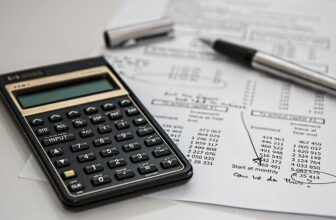
We’re diving into the intriguing world of assets and depreciation. Buckle up as we unravel the mystery of what assets cannot be depreciated.
Yep, some assets don’t lose value with age.
Here’s a table comparing the different categories of non-depreciable assets with important points:
| Asset Category | Characteristics | Tax Considerations | Resources |
|---|---|---|---|
| Land | – Appreciates over time. – Not subject to wear and tear. | – Generally not depreciable for tax purposes. | IRS – Depreciation of Rental Property |
| Collectibles | – Includes items like stamps, coins, art, and memorabilia. – Value often tied to rarity and demand. | – Non-depreciable for personal use. – Capital gains tax may apply upon sale. | IRS – Publication 561 |
| Stocks | – Represents ownership in a company. – Value fluctuates with the stock market. | – Not subject to depreciation. – Capital gains tax may apply upon sale. | Investopedia – Introduction to Stocks |
| Property | – Residential property like homes. – Provides shelter and appreciates in value. | – Generally not subject to depreciation for personal use. – Tax considerations upon sale. | IRS – Homeownership and the IRS |
| Intangibles | – Includes patents, copyrights, and trademarks. – Value often tied to intellectual property. | – Non-depreciable for tax purposes. – Amortization may apply to certain intangibles. | FASB – Intangible Assets |
| Precious Metals | – Gold, silver, platinum, etc. – Valued for rarity and industrial use. | – Typically not subject to depreciation. – Capital gains tax may apply upon sale. | IRS – Precious Metals |
| Cryptocurrencies | – Digital assets like Bitcoin, Ethereum, etc. – Decentralized and subject to market fluctuations. | – Generally not subject to depreciation. – Tax implications upon sale or exchange. | IRS – Virtual Currencies |
| Government Bonds | – Securities issued by government entities. – Steady interest payments and return of principal. | – Typically not subject to depreciation. – Interest income may be taxable. | Investopedia – Government Bond |
We tried to provide a quick overview of each asset category, highlighting their characteristics and key tax considerations. Remember, always consult with a tax professional for the most accurate and up-to-date information tailored to your specific situation.
Now, we will try to give brief description about each non-depreciable assets
Land:
Land whether it’s a spreading countryside acre or a prime piece of urban real estate, land doesn’t play by the depreciation rules. Unlike a car that loses value the moment you drive it off the lot, land tends to appreciate over time. Check out the Internal Revenue Service (IRS) for the nitty-gritty tax details.
Collectibles:
Think stamps, coins, art, or vintage action figures. These collectibles are not just cool—they’re also non-depreciable. The IRS has its eyes on these, too. For more on the tax side, check out their page on “Personal-Use Property”.
Stocks:
Now, let’s talk stocks. These little certificates of ownership in a company don’t succumb to depreciation. Why? Because their value is subject to the wild rides of the stock market. You win some, you lose some, but depreciation isn’t in the cards. Dive deeper into stock intricacies with insights from Investopedia.
Property:
Your cozy abode is a treasure trove of memories and, lucky for you, it doesn’t depreciate. Residential property, like your home sweet home, is generally considered non-depreciable. But, it’s always good to keep up with the latest tax rules; swing by Homeownership and the IRS for the deets.
Intangibles:
Intangible assets, like patents and copyrights, are also in the non-depreciation club. They might not be tangible, but their value endures. Learn more about intangible assets and their unique standing at The Financial Accounting Standards Board (FASB).
Precious Metals: Gold, Silver, Platinum.
Precious metals, like gold, silver, and platinum, have long been prized for their rarity and diverse applications. Unlike most assets, these metals tend to resist depreciation, maintaining their intrinsic value over time. While not subject to traditional wear and tear, keep in mind that capital gains tax may apply upon sale. Explore the precious metals landscape with insights from the IRS.
Cryptocurrencies: Bitcoin, Ethereum, etc.
Welcome to the digital frontier of non-depreciable assets – cryptocurrencies. Bitcoin, Ethereum, and their kin are decentralized and immune to physical wear. Their value dances with market dynamics, providing an interesting twist to the depreciation saga. Dive into the world of virtual currencies and their tax implications at the IRS’s Virtual Currencies.
Government Bonds: Securities Issued by Government Entities
Government bonds, the stalwarts of fixed-income securities, are known for their stability. These financial instruments, issued by government entities, typically resist depreciation. While they aren’t subject to wear and tear, keep in mind that interest income may be taxable. Delve into the realm of government bonds with insights from Investopedia.
Remember, while these assets might not depreciate.. Always stay in the know with the latest tax regulations to ensure your financial ship sails smoothly.
Why does it matter?
Why you need to differentiate which asset cannot be depreciated and which can be? Here we are sharing some important points which might be helpful for you:
- Preservation of Value: Non-depreciable assets tend to maintain or appreciate in value over time. Recognizing these assets allows investors to preserve their wealth and make strategic decisions to protect their financial resources.
- Long-Term Wealth Building: Non-depreciable assets often serve as cornerstones for long-term wealth building. They provide a stable foundation that can withstand economic fluctuations, contributing to sustained financial growth.
- Tax Planning: Recognizing assets that cannot be depreciated is crucial for effective tax planning. Different tax rules apply to various asset classes, and understanding these rules helps individuals and businesses optimize their tax strategies.
- Diversification Strategies: Knowledge of non-depreciable assets enables investors to diversify their portfolios effectively. Diversification helps spread risk and may enhance overall portfolio resilience in changing market conditions.
- Smart Investment Decisions: Investors armed with information about non-depreciable assets can make smarter investment decisions. They can allocate resources to assets that have the potential for long-term stability and resist the erosive effects of depreciation.
- Wealth Preservation Strategies: For those focused on preserving generational wealth, identifying assets that do not depreciate is paramount. These assets can be part of a comprehensive strategy to pass on wealth to future generations.
- Adaptation to Market Dynamics: Markets evolve, and economic landscapes change. Recognizing non-depreciable assets allows individuals and businesses to adapt to these dynamics, adjusting their investment strategies for continued financial success.
- Risk Management: Understanding which assets resist depreciation aids in effective risk management. It allows investors to balance their portfolios, mitigating potential risks associated with assets that may depreciate more rapidly.
In essence, knowing what assets cannot be depreciated empowers individuals and businesses to make informed, strategic decisions that align with their financial goals, whether those goals involve wealth preservation, long-term growth, or effective tax planning.
What next you should do?
Consider taking the following steps:
- Evaluate Current Portfolio: Assess your existing investment portfolio to identify assets that align with the non-depreciable category. Ensure a diversified mix for long-term stability.
- Consult with Financial Advisor: Reach out to a financial advisor for personalized guidance. They can help tailor your investment strategy based on your financial goals, risk tolerance, and the unique characteristics of non-depreciable assets.
- Stay Informed on Tax Regulations: As tax implications are a crucial aspect, stay informed about the latest tax regulations related to non-depreciable assets. This ensures compliance and helps you make informed decisions.
- Explore New Investment Avenues: Consider exploring new investment avenues within the non-depreciable realm, such as precious metals, cryptocurrencies, or government bonds. Research and understand the dynamics of each asset class before making any decisions.
- Review Long-Term Financial Goals: Take a moment to review and possibly revise your long-term financial goals. Non-depreciable assets often play a role in wealth preservation, so align your goals with these assets accordingly.
- Continue Learning: The financial landscape is dynamic. Stay curious and continue learning about investment strategies, market trends, and new opportunities within the non-depreciable asset space.
- Network and Seek Insights: Engage with financial communities, forums, or discussion groups. Exchange insights and experiences with others who have explored non-depreciable assets to broaden your knowledge base.
Remember, each individual’s financial situation is unique. It’s advisable to tailor your actions based on your specific circumstances and, when in doubt, consult with financial professionals for personalized advice.
FAQs: Non-Depreciable Assets
Q1: On which assets is depreciation not allowed?
Depreciation is not allowed on certain assets that inherently resist wear and tear. Examples include land, collectibles, stocks, residential property, intangible assets like patents, copyrights, precious metals (gold, silver, platinum), cryptocurrencies (Bitcoin, Ethereum), and government bonds. Explore the nuances of depreciation exemption in various categories for a deeper understanding.
Q2: Which equipment cannot be depreciated?
Certain equipment, such as land, collectibles, and certain intangible assets like patents and copyrights, is generally not subject to depreciation. It’s essential to distinguish between tangible and intangible assets when considering depreciation. While machinery and equipment are often depreciable, assets like land and intellectual property typically stand immune to the depreciation game.
Q3: What asset cannot be depreciated indeed?
Various assets fall under the category of non-depreciable, meaning they do not lose value over time due to wear and tear. Land, collectibles, stocks, residential property, intangible assets like patents and copyrights, precious metals, cryptocurrencies, and government bonds are examples of assets that indeed resist depreciation. Dive into the specifics of each category to unravel the reasons behind their resilience.
Q4: What are depreciable assets?
Depreciable assets are those that experience a decrease in value over time due to wear and tear, obsolescence, or other factors. Common examples include machinery, vehicles, equipment, and certain types of buildings used for business purposes. The depreciation process allows businesses to allocate the cost of these assets over their useful lives, providing a more accurate representation of their expenses. Understanding depreciable assets is crucial for proper financial planning and tax considerations.







